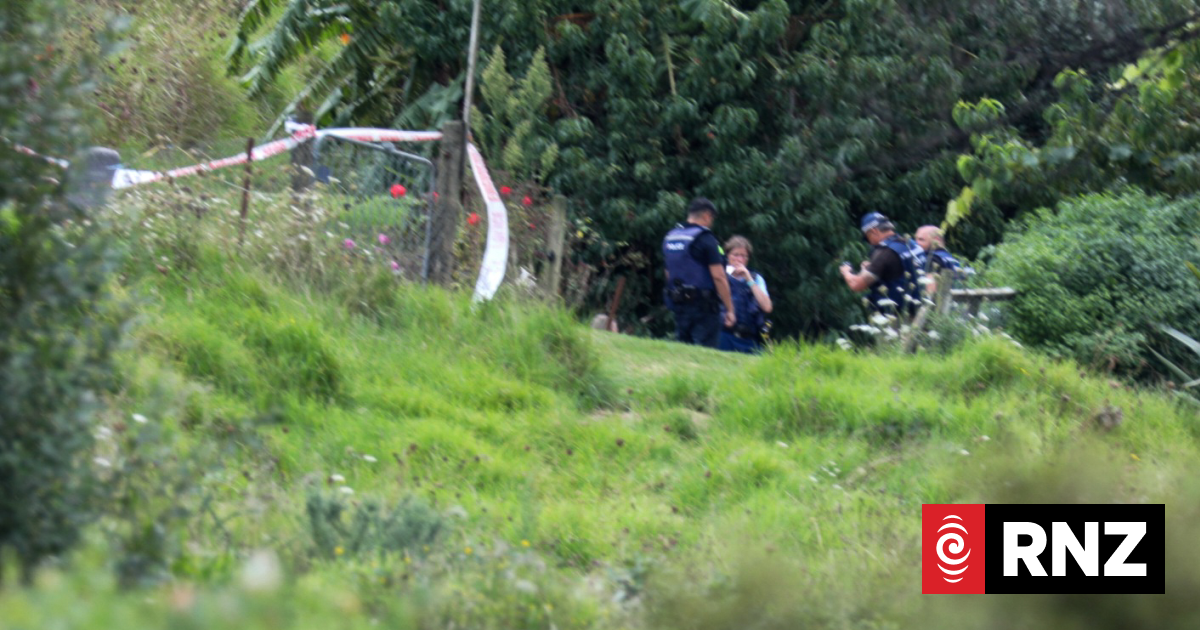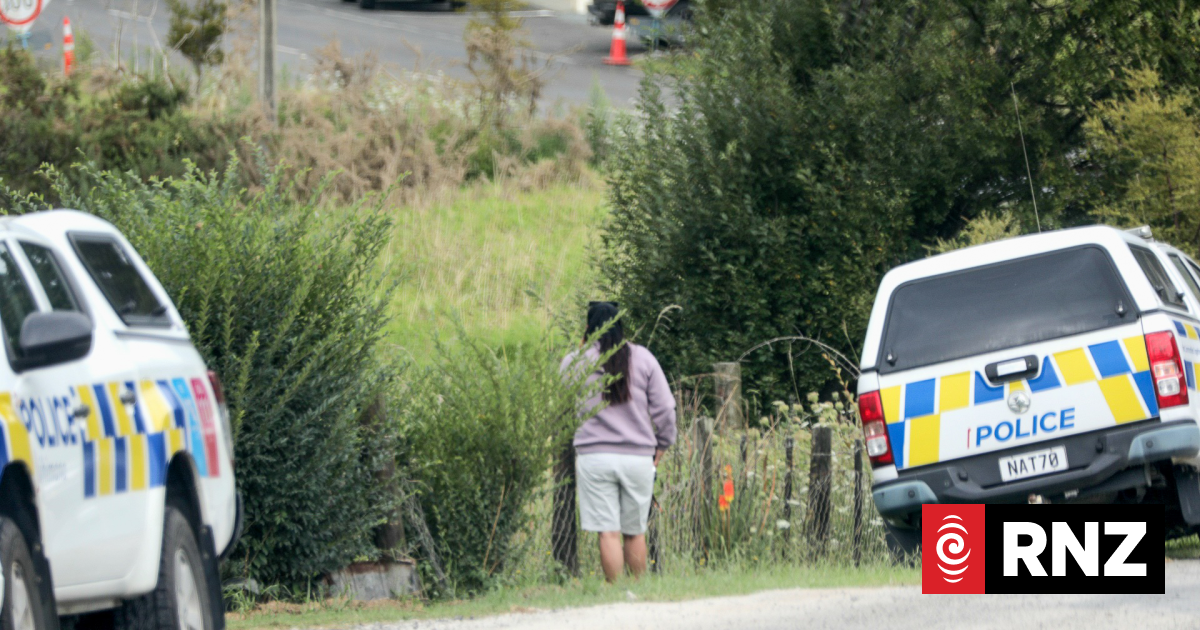CCTV camera have recently been installed in Kamo following funding through the Proceeds of Crime fund. Photo / Michael Cunningham
Whangārei has more eyes in the sky as Kamo and Hikurangi play host to 60 new high-quality CCTV cameras that capture incredible detail.
The state-of-the-art changes come after a rise in criminal activity
that has seen business owners hiring security and stopping their staff from walking alone at night.
Onerahi is potentially next on the list as a new zone, though the expansion has those involved carefully balancing public safety with public privacy.
While the new cameras are welcome news to local businesses and police, Whangārei district councillor and ex-policeman Gavin Benney said it’s “alarming” we need more in the first place.
“In a perfect world, we wouldn’t need it,” he said.
Benney said the council and police need to be smart about where cameras are placed, such as in areas where people are known to gather and anti-social behaviours are likely to unfold. He said there are still blank spots near the Town Basin and at the entrances and exits of suburbs.
/cloudfront-ap-southeast-2.images.arcpublishing.com/nzme/CGKJTP5WCBDWFOJLRKHYCRJRVE.JPG)
Benney noted the use of cameras in Ōakura deterred crime in the past. Further north, Paihia received new cameras in 2021, which aided crime-solving initiatives and deterred people from speeding.
There are currently 315 cameras on the Whangārei CCTV network.
Advertisement
In the CBD, there’s a total of 87 cameras. This includes 48 cameras in the CBD ‘triangle’ of Bank St, Walton St, Water St and Robert St. The central city carpark has 25 cameras and the Rose St bus stop has 14.
/cloudfront-ap-southeast-2.images.arcpublishing.com/nzme/BRTRCF6UZ5H7PGGVL3PXVA34OU.JPG)
Benney believes “the more the better” when it comes to CCTV catching offenders, but the tool needs to be utilised alongside other crime prevention measures, such as a larger police presence.
A recent visit to Christchurch highlighted to Benney how the city was more vibrant. There were more children around, and there was a safer “vibe” to it, he said.
“You didn’t have to walk far to see police,” he said, “they were there proactively.”
He said comparatively, Whangārei has become a “city of security guards” who are stationed in every business due to a lack of police on the beat.
Northland Chamber of Commerce president and owner of Bernina Northland, Tim Robinson, said alongside hiring private security, many business owners don’t let their staff walk to their cars alone at night.
“The simple fact is that when police have been present, the troublemakers vanish,” he said.
CCTV is something Robinson said can be useful, but requires better monitoring and more resourcing.
Advertisement
/cloudfront-ap-southeast-2.images.arcpublishing.com/nzme/E2IRLUWOLFBMRPGTJP4CEGOPWQ.JPG)
“There are a lot of requests for footage from businesses after incidents, but they are often unfulfilled due to a lack of resource,” he said.
While the council and police are responsible for public areas, shops must supply their own, leading to a significant gap in the CCTV network.
Police work with councils to identify areas that would be beneficial in both the prevention and detection of crime, and cameras are helpful for gathering evidence and identifying suspects as well as preventing crime and disorder.
Whangārei area commander Inspector Maria Nordstrom said Whangārei is “by and large a safe place to live and work”.
However, police’s own data showed assaults in downtown Whangārei had increased from 54 per cent in 2021 to 83 per cent in 2022.
Perhaps even more telling are the results from a 2022 Youth Advisory Group survey which found 25 per cent of respondents didn’t feel safe in the CBD.
Fifty-three per cent of respondents said a larger police presence in the CBD was preferable, and 26 per cent said they wanted to see better lighting and monitored cameras.
The new cameras were applied for through the Proceeds of Crime fund by local business groups. The fund utilises assets seized by police to aid crime prevention projects across the country.
The upgrades in the CBD, Hikurangi and Kamo were all part of the same fund, estimated to cost $765,000.
The cameras in Hikurangi are monitored from Hikurangi Police Station, and Kamo’s at Kamo Police Station.
It’s expected the next round of funding will allow the current footage at both stations to be streamed back to the Whangārei station, where they are monitored 24/7 by police-vetted volunteers.
Word on the street: what do locals think?
Kristine Amato said while she feels safe in the CBD, that’s because she’s not there after dark.
“I’m concerned about young people. Because they’re out here, and often bad stuff happens [at night].”
She believes incidents in which people have been hurt badly often come down to drugs and alcohol, and having CCTV coverage helps “deter” crime.
“That’s always a good thing,” she said. “We should all know by now where the key spots are.”
/cloudfront-ap-southeast-2.images.arcpublishing.com/nzme/BH65IQOOKRBJ5BH4YAZJP6L6C4.JPG)
Manaaki Peri, who is a mother of one, said CCTV could be a useful tool for identifying criminals, but it’s not fixing the problem.
She would prefer more people on-hand who could better monitor the streets. She said she “definitely” doesn’t feel safe in the CBD anymore.
“You just don’t know. You could be walking, and the next minute, they’re gonna knock you out for your phone.”
“It is scary. It’s getting worse and worse.”
/cloudfront-ap-southeast-2.images.arcpublishing.com/nzme/JEHHLKVQRVGYFKMENRBTE3NQNQ.JPG)
Hair By Me owner Megan Edwardson said her shop windows had been smashed when they were based at Cameron Street.
She said CCTV is something at the forefront of her mind after opening a new location on John St.
“We’ve talked about it a lot,” she said.
“It gives the ability to see who actually did it – there’s the possibility of repercussions for actions.”
/cloudfront-ap-southeast-2.images.arcpublishing.com/nzme/WBNKP5BHENHWZO3GWC3BTXDUHQ.JPG)
“We finish at like 7.30pm on a Thursday evening and I don’t let the girls walk to their cars. We will all drive together and do the car drop-off, because you just don’t know who’s out and about.”
“The general consensus, I think, [of the] business owners in town that I know of is like, ‘It doesn’t quite seem as safe as it used to’.”
Brodie Stone is the education and general news reporter at the Advocate. Brodie recently graduated from Massey University and has a special interest in the environment and investigative reporting.


